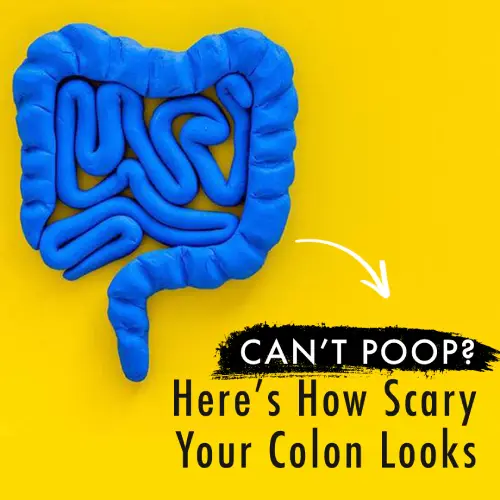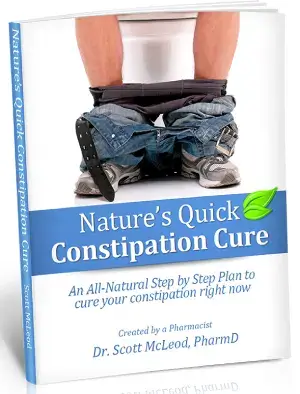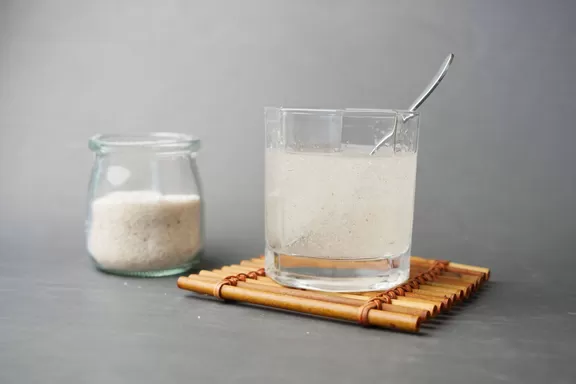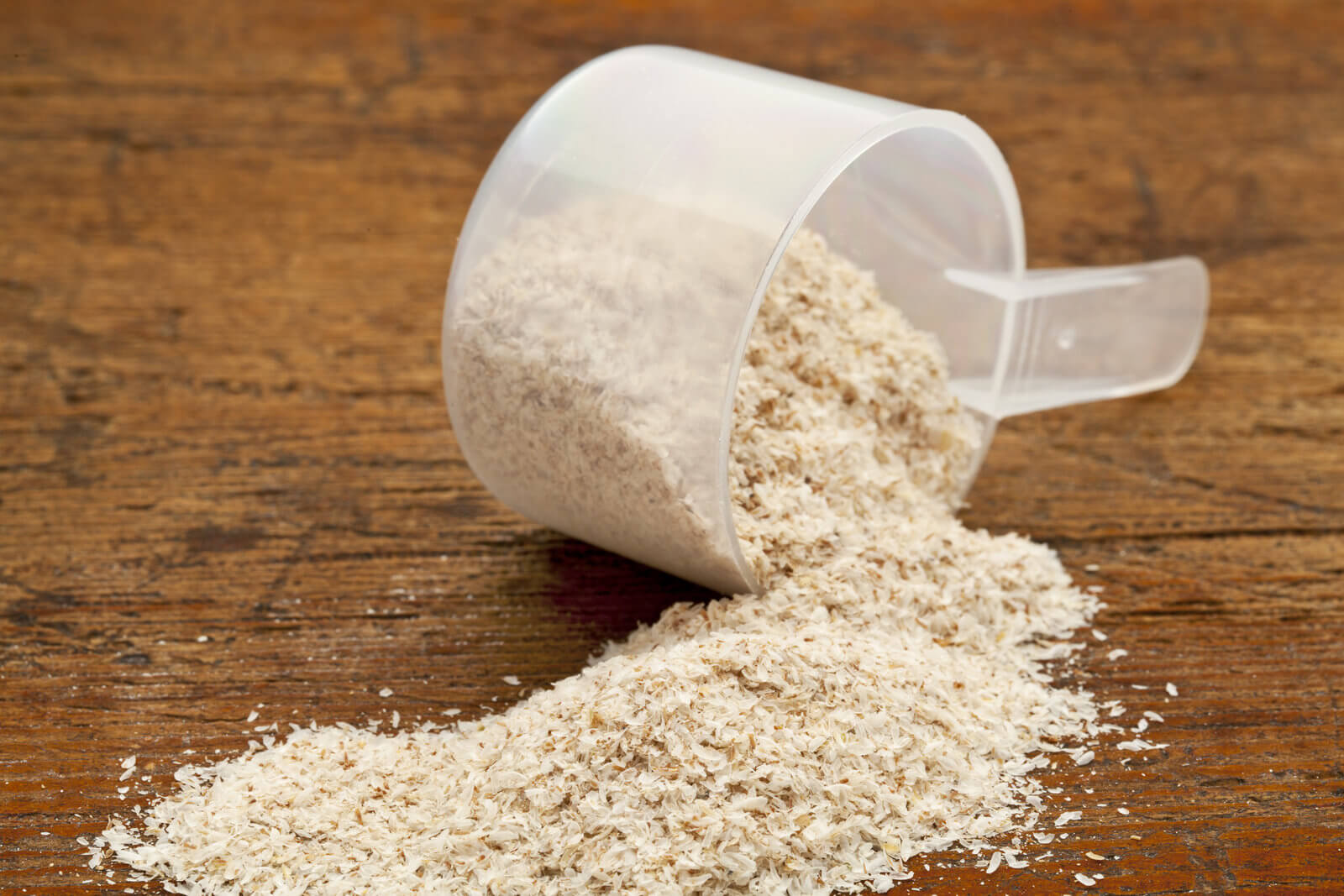
Psyllium (Plantago ovata) husk can be used to treat constipation. And, the popular fiber supplement Metamucil® is 100% psyllium fiber, attesting to the effectiveness of this treatment. There is a lot of research demonstrating that psyllium can help with constipation, but it can even help chronically constipated people as well.
The reason this herbal remedy works is still somewhat illusive, but has to do with it being a bulk laxative and maybe also because it changes the bacteria in the gut. The changes in gut bacteria can lead to short chain fatty acids being created, which might help with constipation.(source 6)
Possibly the most important thing to be aware of when you are using psyllium is that you need to get plenty of fluids when you take it! If you don’t drink enough liquid, you could become even more constipated as a result. So make sure to drink plenty of water as well.
Psyllium may take some time to fully improve your symptoms, and treatments with this herb usually last for long periods of time. So if you are looking for more of an emergency measure to have a bowel movement quickly, consider a strong herbal laxative like aloe vera latex or cascara sagrada.
But, if you are looking for a natural way to treat constipation, you may want to try a different approach than psyllium.
Research shows that prunes and flaxseed are individually more effective than psyllium at relieving constipation.(source 10)(source 11) So, combining these two natural remedies and eating them at the same time might even produce a synergistic healing result!
There are a lot of herbal remedies for constipation, and Herbsey has a lot of information on these different approaches.
How to take Psyllium for Constipation
A 2018 study in Complementary Therapies in Medicine(source 2) stated the exact way that psyllium husk helps treat constipation was currently not fully understood. Yet it is understood that it is a viscous, gel forming fiber supplement and is a bulk fiber laxative.
A systematic review of studies on fiber supplementation for chronic constipation was published in 2022 in The American Journal of Clinical Nutrition.(source 1) The review included 16 studies with a combined total of 1,251 participants.
The review states that doses of 10 g / day for at least 4 weeks appears to be the optimal treatment protocol for constipation. Although, the study does say that there were considerable differences between the studies it reviewed.
Side Effects of Psyllium & Dosage Guidelines
Although we already discussed taking in plenty of water and other fluids as a key thing to remember about using psyllium (as not doing this can cause pretty bad constipation), there are some other concerns.
This topic is outside the scope of this article, but Herbsey does have an entire evidence-based overview of the side effects and dosage guidelines for this herb. If you have time, check out the link below to get the facts on how to be safe when using psyllium.
Side Effects of Psyllium & Dosage Guidelines
Samuel Bart’s Digestive Health Solution
Samuel Bart has always been passionate about plants and their ability to keep us healthy. He has put together some of the best natural ways that could help anyone support a healthy digestive system.
Samuel perfected an easy, yet powerful formula, which consists of amazing ingredients. Bart’s supplement is backed by a ironclad 60-day, money back guarantee.

Why Psyllium Works as a Laxative
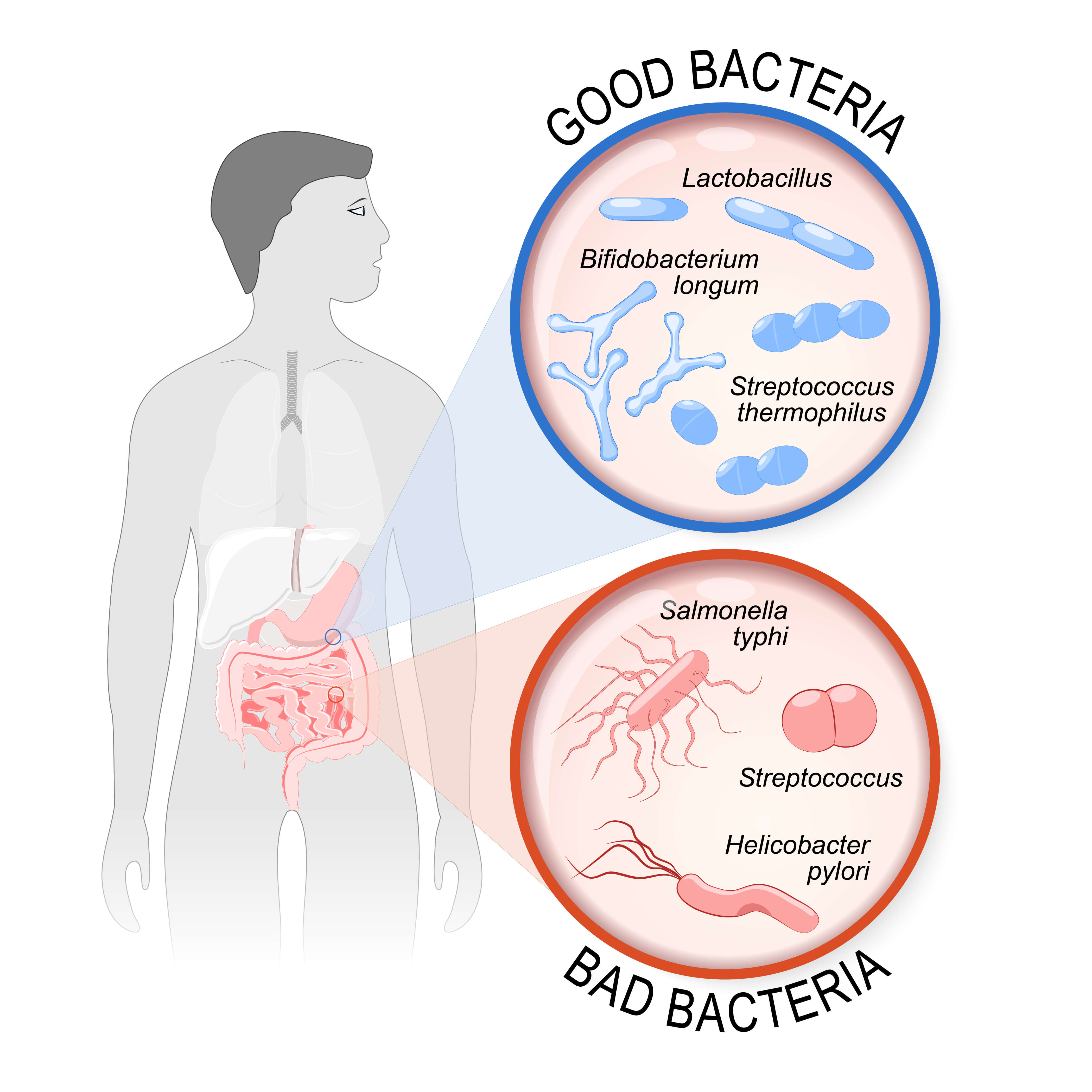
A 1995 study in Alimentary Pharmacology & Therapeutics(source 3) suggested that the beneficial effects of psyllium for constipation are mainly related to helping the defecation process. The constipation relieving effects are not associated with changes in colonic or rectal motor function.
A StatPearls paper(source 4) on the U.S. National Library of Medicine website states that psyllium is a bulk laxative; and, describes how bulk laxatives work:
These agents retain fluid in the stool and increase stool weight and consistency. Psyllium, dietary fiber, and methylcellulose are common examples. It is important to take ample amounts of water for bulk-forming agents to work. Lack of water, in turn, leads to bloating and can cause bowel obstruction.
Laxatives. StatPearls Publishing LLC (2023)
Although clearly the reason why psyllium works is of course due to it being a bulk forming laxative, there may be a microbiological reason as well.
A 2019 study in the International Journal of Molecular Sciences(source 5) looked at how psyllium would influence constipation and gut bacteria. The study used both constipated and healthy volunteers.
Psyllium supplementation had a small, but statistically significant effect, on gut microbial composition of healthy adults. In constipated participants the gut microbial composition change was greater. The study found several microbes to be associated with alterations in gastrointestinal transit, short chain fatty acids, and stool water content in constipated participants.
A 2023 study in Gut Microbes(source 6) looked at how psyllium husk influenced gut bacteria in 250 constipated adults. The study used psyllium in two different treatment approaches; one being psyllium, and the other being psyllium plus wheat bran. Oligosaccharide (a carbohydrate whose molecules are made from a small number of monosaccharides) supplementation was also used with these treatments as well.
The study showed that gut Anaerostipes (an anaerobic bacterial genus) constantly increased in both groups of people taking psyllium husk. This increasing trend tended to be associated with a higher bowel movement frequency.
The study cites research where Anaerostipes was able to convert dietary inositol (a sugar made in the body and found in foods) into acetate and propionate. Acetate and propionate are both short chain fatty acids (SCFAs). SCFAs are metabolites which are synthesized when bacteria ferment specific prebiotic fibers in the colon.
SCFAs are relevant to constipation because they may acidify intestinal pH, inhibit pathogens, help with colonic motility, and improve bowel movement frequency.
The study suggested that this may help to explain the possible way in which dietary fiber helps relieve constipation via optimizing gut microbes like Anaerostipes.
The study has this to say about dietary fiber supplementation and how it helps remedy constipation:
Collectively, dietary fiber supplementation, may substantially relieve constipation, by interactions with host gut microbes, and modulations of microbe abundance in functional constipation patients; host gut microbiota may predispose the ways of their interactions with fiber intake, resulting in the individual differences in constipation symptom improvement.
Gut Microbes [15.1 (2023): 2197837]
Guaranteed 24 Hour Constipation Relief
Dr. Scott McLeod, PharmD received his doctorate from the WSU College of Pharmacy. His book on constipation is guaranteed to show you how to get relief in 24 hours or less-or your money back (60 day, 100% refund guarantee).
Everything used in this plan is from nature. No use of harmful laxatives. People who have used these say they work BETTER than over-the-counter laxatives!

Chronic Constipation & Psyllium Treatment
A 2021 study in the Official Journal of the American College of Gastroenterology(source 7) looked at 79 patients with chronic constipation (CC) with an average age of 42.7 years. These patients were randomly assigned to receive one of three treatments: psyllium, kiwifruit, and prunes. The patients took their respective treatments for 4 weeks.
The primary outcome the study measured was complete spontaneous bowel movements (CSBMs); and, the patients all had three or less CSBMs per week. The study found that the treatments all produced a similar rate of improvement in CSBMs.
When comparing symptoms on weeks 3 and 4 to the symptoms at the start of the study, the study found:
- Straining improved with all three treatments
- Stool consistency improved with prunes and kiwifruit
- Patients taking kiwifruit reported an improvement in bloating
- Side effects were most common with psyllium and least common with kiwifruit
A 2020 study in the Journal of the American Association of Nurse Practitioners(source 8) conducted a comprehensive review of studies in a 50 year time frame from 1968 to 2018.
The review found that psyllium was 3.4 times more effective at treating CC than insoluble wheat bran in terms of stool output.
The review also found that both psyllium and coarse wheat bran increased stool softening, stool water content. But, the finely ground wheat brand had a stool hardening effect of lowering stool water content.
The study concluded that it was a misconception to say that all dietary fibers provide a laxative effect for people with CC. So it is important to understand which types of fiber actually provide a benefit.
A 2021 study in Aging(source 9) looked at 54 women of reproductive age with CC. The women took either a placebo or psyllium husk with warm water two times a day for 4 weeks.
The study found that the psyllium husk treatment relieved the symptoms of constipation in the women. And, it also showed that the composition of the gut bacteria of these women was changed. The bacteria’s metabolism was also changed by the treatment; and, the researchers speculated this might be related to the changes in symptoms.
Naturally Treat Hemorrhoids in 48 Hours
Jessica Wright’s unique 5-step, all-natural approach to hemorrhoid treatment delivers permanent relief. Heal hemorrhoids in 48 hours, and eliminate the root cause in 30 to 60 days.
Benefit from Jessica’s 12 years of research; her book is backed by a 60 day, 100% money back guarantee.

Psyllium VS Other Natural Constipation Remedies
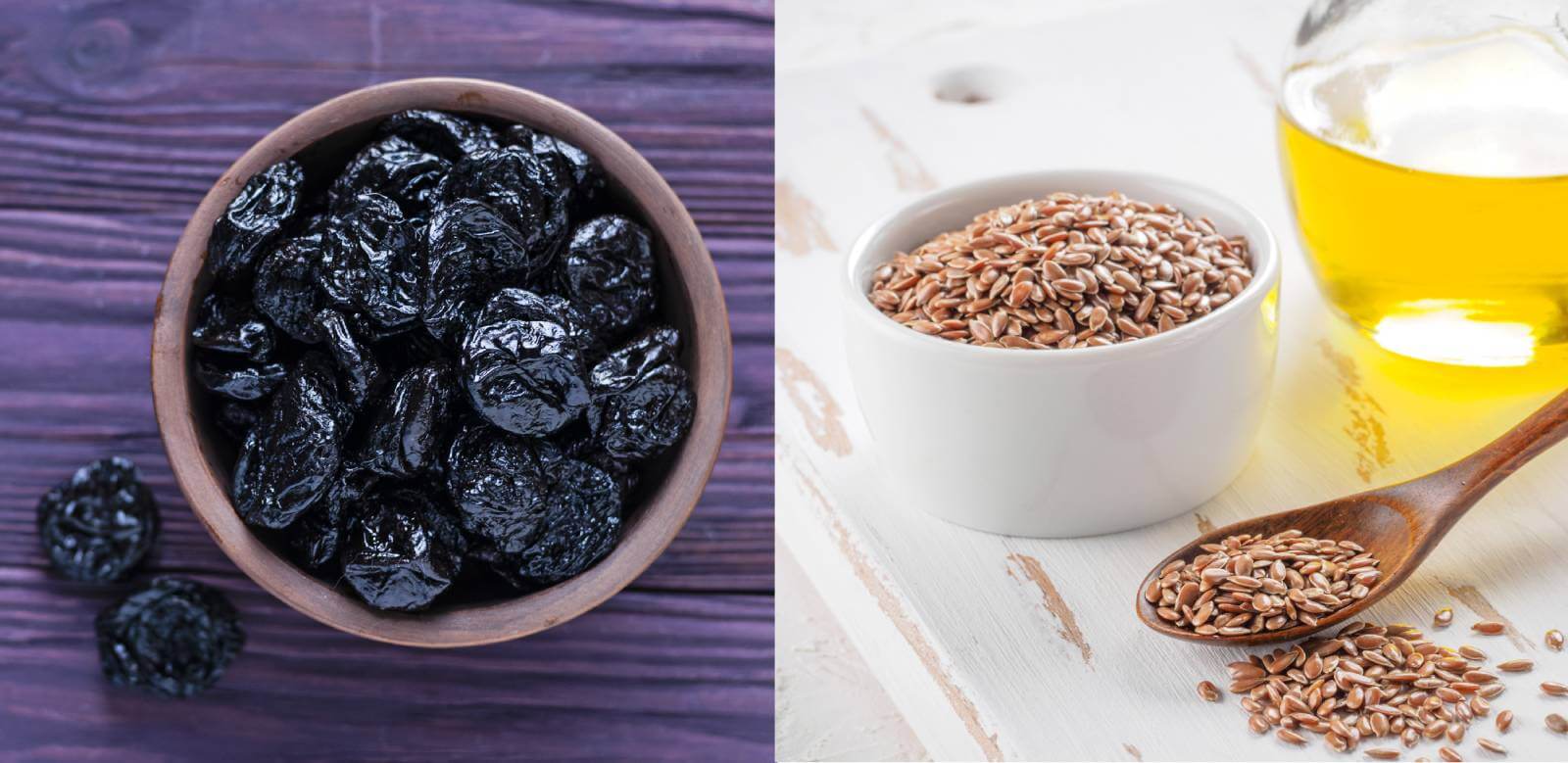
An interesting study published in 2019 in Clinical Nutrition ESPEN(source 10) compared psyllium and flaxseed in the treatment of constipation. The participants in the study were 77 constipated people with type 2 diabetes.
The participants took 10 g of either flaxseed, psyllium, or placebo twice a day for 12 weeks. Constipation symptoms and other metrics were monitored at the beginning and at various intervals through the duration of the experiment.
The patients were graded on a scale of points: -3 markedly worse, -2 somewhat worse, -1 a little bit worse, 0 no change, +1 a little better, +2 somewhat better, and +3 markedly better.
The study found that flaxseed appeared to be superior for treating constipation than psyllium. People who took flaxseed reported an average improvement of 2.46 points. Those taking psyllium reported an improvement of 1.42 points.
The study came to the following conclusion: Although both flaxseed and psyllium may decrease constipation symptoms, weight, glycemic and lipid levels, treatment with flaxseed appear to be superior to psyllium.
A 2011 study in Alimentary Pharmacology & Therapeutics(source 11) compared prunes to psyllium to find out how effective they were at treating constipation. The study enrolled 40 participants who had constipation for 3 or more days a month for the past 3 months.
Participants took either 50 g of prunes twice a day with meals or 11 g of psyllium (Metamucil®) with 8 oz of water twice a day for a 3 week period.
The study’s main measure was complete spontaneous bowel movements per week was improved with the use of both treatments. Stool consistency improved more with prunes than it did with psyllium. But, overall constipation symptoms did not differ between the psyllium and prune groups, showing that the treatments were similar.
The study concluded that prunes were superior to psyllium in treating constipation, stating: Dried plums are safe, palatable and more effective than psyllium for the treatment of mild to moderate constipation, and should be considered as a first line therapy.
The conclusion of this matter seems to be that it would be better to combine flaxseed and prunes in the diet with plenty of water to arrive at a better therapy for constipation than just relying on psyllium husk.
Herbsey has an entire evidence-based article on using flaxseed for constipation, feel free to check it out if you have time.
Dr. John Herzog (MD)
Dr. John Herzog, a "survival surgeon" from Maine explains what home remedies work best in a crisis situation.
This may be important in the event you require first-aid or are in an emergency situation without easy access to a hospital. Dr. John Herzog has assembled a large collection of home remedies for such scenarios.

A Natural Digestive System Supplement that Helps
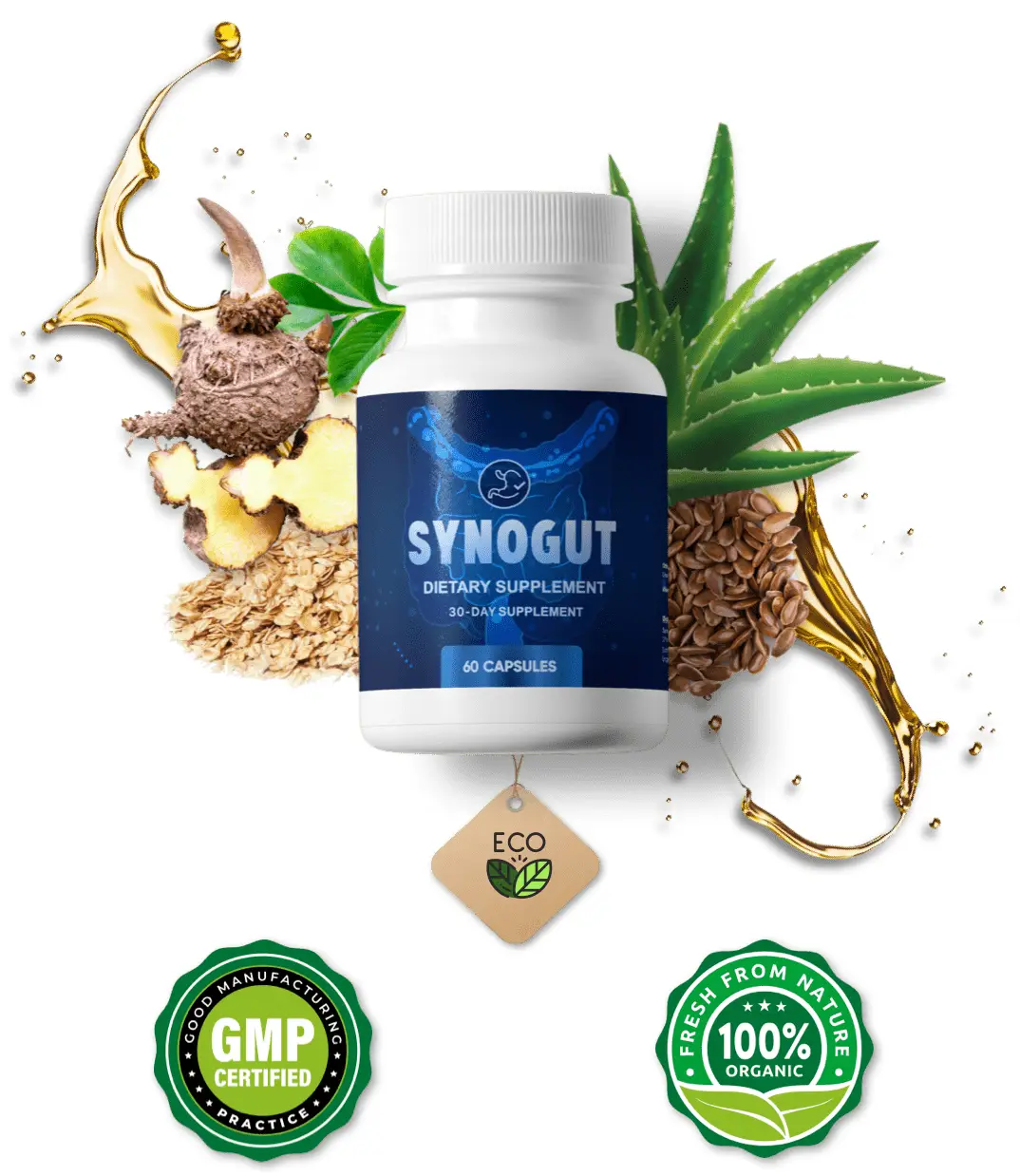
If you have been struggling with digestive problems like constipation, you should know about Samuel Bart. Mr. Bart lives with his wife, Alma, in Nashville, Tennessee.
Mr. Bart has always had a passion for plants and how to use them medicinally. He went on to research some of the most effective ways that could help people support a healthy digestive system.
To this end, Mr. Bart developed a product he calls “SynoGut.”
Every capsule of this supplement is made in the USA, in a FDA approved, and GMP certified, facility under sterile, strict, and precise standards. Synogut capsules are non-GMO. You can rest assured that they do not contain any dangerous stimulants or toxins, and more importantly, they are not habit forming.
His proprietary blend blend contains the following ingredients:
- Psyllium husk
- Bentonite clay
- Black walnut hull
- Oat bran
- Flaxseed
- Prune fruit
- Aloe vera leaf
- Lactobacillus acidophilus (a probiotic bacteria)
- Apple fruit pectin
- Glucomannan root
If this is not the first time you have had constipation, you might benefit from the power these natural items can provide. And, if you have had prolonged constipation, utilizing a supplement like Mr. Bart’s could help you become more regular—without an arsenal of prescription drugs.
Many people have tried synthetic drugs to solve their constipation issues; and if these didn’t work, it may be hard to invest in a natural remedy like SynoGut. To this end, Mr. Bart offers a 60 day, full refund guarantee on his supplement.
If you decide to invest in Mr. Bart’s supplement, and are not satisfied with the results, you can quickly request a refund. SynoGut will promptly refund your purchase; ensuring there is no risk to give Mr. Bart a chance.
SynoGut is sold via the large online retailer ClickBank—a company based in Boise Idaho, USA. ClickBank sells products across the world, and ensures you can get a refund if you are not satisfied with SynoGut’s results.
If you are in a situation where you have “tried everything,” SynoGut is worth the quick purchase and a solid test drive. If you would like to learn more about Samuel Bart’s SynoGut supplement, you can do so at the SynoGut website.
About the Author
Geoff Kent is a natural medicine enthusiast who has been researching and writing about natural medicine since 2008. Geoff is primarily a web developer, but also researches and authors written and video content about natural health. Geoff has a bachelor’s degree in Management Information Systems from the University of Northern Iowa.
More on Geoff KentImportant Disclosures & Disclaimers
It is important to use the information you find on Herbsey.com in the right way. Also for legal reasons, these disclaimers and disclosures are necessary. For further information about each, feel free to click the link provided to the page on this website that provides more information.
Medical Disclaimer
The information on this website is not a prescription for anyone. This information is for informational or educational purposes only, and is not a substitute for professional medical advice or consultations with healthcare professionals.
Advertisement Disclosure
Some of the links provided on this article and website are affiliate links. If you purchase a product after clicking on these links, Herbsey.com will earn a commission. Herbsey.com promotes various products through advertisement and text links. For more information: Our Advertisements.


